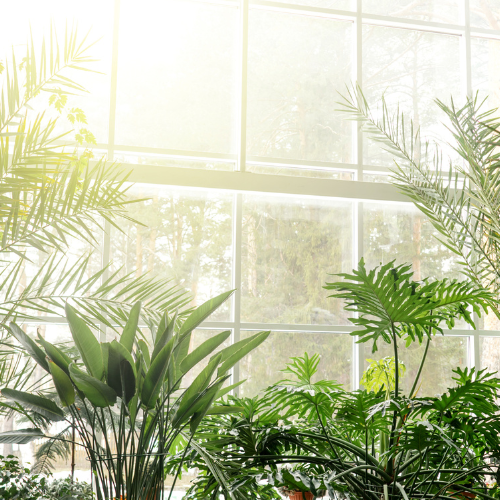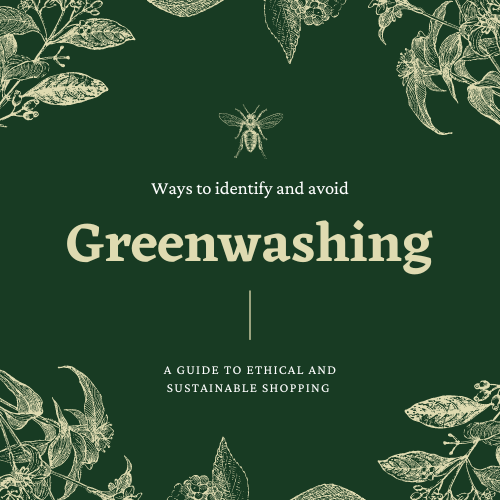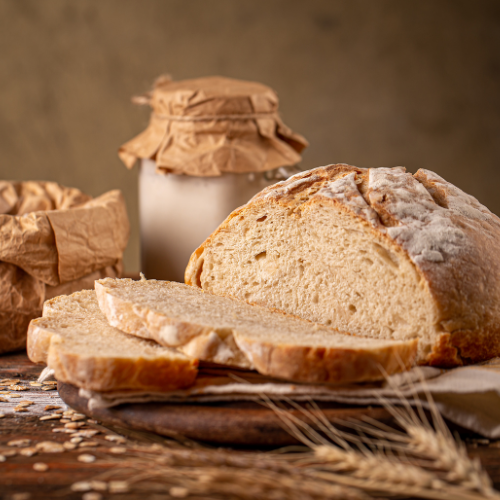Eco Friendly Cleaning Q&A's. Without Greenwash!

Choosing ethical products and living more sustainably is probably a path you've already embarked upon, considering the fact you've clicked to open this blog. No doubt you've likely done some research and formed a relatively solid stance on the food you consume, the ingredients you'll accept in your skincare, and the reusable or recyclable qualities of your purchases. Yet, surprisingly research suggests that this same care is often not extended to the cleaning products the vast majority of people liberally spray and wipe throughout their homes daily.
Whether our barriers to committing to eco-friendly cleaning products are due to the price, unconscious bias about effectiveness, a lack of knowledge in regards to harmful ingredients, overwhelm due to conflicting marketing 'greenwash' or simply an attachment to the way we and our parents have always done our house cleaning. The serious fact of the matter is a lot of the ingredients in mainstream cleaning products are harmful to our skin, eyes, and nervous system, in addition to being harmful to animals and the planet. The intention of this blog is to help 'future you' better discern which are the bone-fide eco-cleaning products when you shop, and understand the true value they represent both short and long term.
Let's begin by addressing the common questions;
1. Aren't Eco-friendly cleaning products more expensive?
Initially, it can feel like a bit of a decision to invest in clean, eco-friendly products if you are not used to choosing them. It may seem you are paying more than you would for cheap, toxic products. But once you try genuinely environmentally friendly products that use the power of organic botanicals, I think you'd find it hard to justify going back to the synthetic fragrance and harsh effect of conventional products. Candice and I certainly couldn't and in fact know immediately when we find ourselves in places where harsh toxic chemicals have been used.
The fact of the matter is that with ethical choices comes cost. Ditching single use plastic, avoiding palm oil and using fairly traded toxin free quality ingredients are just some of the ethical choices that equate to higher price points. But at the same time, quality formulations typically go much further (often even saving you money in the long run), and most importantly don't result in a cost to our family and the planet's health.
2. How do you identify greenwashed brands?
If this is something you are really invested in understanding, then I strongly urge you to do some of your own research, and continue to read relevant literature to grow your knowledge. Below however are some practices that will set you on the right path. (Perhaps as an exercise check the cleaning products you currently have in your home against the recommendations below)
Always check labels carefully.
Interpreting the labels on cleaning products can be tricky, but there are a few things that are easy to look for. If a product meets the criteria below, you can be confident.
- Choosing non toxic and biodegradable cleaning products that are derived from natural ingredients and are unscented or use natural scents is absolutely key, however just because a product reads Natural, or Organic etc, does not necessarily mean this is true or that it is safe.
- A quick and simple practice is to look for what is left out of the bottle, which is generally a better indicator of a well-formulated eco-friendly cleaning product.
- Consider it a red flag If they don’t display their ingredients (it’s not legally required for cleaning products).
-
Beware of the following ingredients to avoid at all costs. This is a list of common nasties found in cleaning products: polyethylene glycols (PEGs), aluminium salts, triclosan, propylene glycol, artificial colours, chlorine, bleaches e.g. (benzoyl peroxide or sodium hypochlorite), sodium lauryl sulfate & sodium laureth sulfate (SLS/ SLES), mineral oils, potassium hydroxide, ethylene glycol monobutyl acetate, dyes, petrochemical solvents, parabens, ammonia, caustics, phosphates, phthalates, methylisothiazolinone. formaldehyde, ammonium sulfate, dioxane (1,4 dioxane/ diethylene dioxide/ diethylene ether/ dioxan), optical brighteners/ UV brighteners, ammonium quaternary sanitizers/compounds (Quats/ synthesized cationic surfactants), nonylphenol ethoxylates (nonoxynol, NPEs), synthetic fragrances (unspecified/ parfum), triethanolamine (TEA), benzyl acetate, dichlorobenzene (p-dichlorobenzene/ benzene), animal derivatives, non-sustainable palm oil-derived ingredients, ingredients tested on animals..
- If they have ‘added fragrance’ or words to that effect, avoid them. Many so-called ‘green’ cleaning products on the market are not actually green. They often combine a large percentage of toxins with a small percentage of essential oil, so they mislead customers into thinking their products are free from harmful synthetic fragrances. Remember, these synthetic fragrances are there to mask the unpleasant smell of ammonia and other compounds.
- A product labeled marine, septic and/or grey water safe indicates it is 100% Natural, Toxin Free and Biodegradable. Therefore would seem like a simple choice. However, we'd still advise following the above recommendations to ensure the brand isn't simply making unsubstantiated "green" claims for branding.
Packaging is something else to consider
Is it genuinely sustainable or just ticking a box? Not only are the mainstream cleaning products a storehouse of toxins, but they also wash millions of microplastics down the drain or contribute to landfill post use. It’s estimated that by 2050 there will be 12 billion metric tons of plastic in landfills.
Further tips
- Stick with fewer brands who you have researched, tried and now trust. Constantly allowing sales to sway you between brands is bound to eventually catch you off guard. Our Mantra is "Minimal brands who use minimal ingredients in their products".
- Does the product manufacture have a website with an easy to find environmental policy that addresses reducing, reusing and recycling practices? Health & wellbeing statements? Ingredient disclosures? Social responsibility programs? etc
- Often you will find the smaller, independent local brands are leading the way in nearly all things eco, ethical and toxin free. And knowing they make their own products in small batches further indicates they are hands on in the creation of their products.
* Side note: At Eden Tree Eco, we have researched each and every product we stock extensively to ensure all the boxes above and more are ticked.
3. Are eco-cleaning products as effective as regular cleaning products?
Let us quash any doubts about eco-friendly or natural cleaning products' efficacy right now. Eco-friendly cleaning products do not equate to lower effectiveness. We use all the products we stock in our store ourselves daily and swear by them. In fact, we've found that due to the concentrated nature of many eco-friendly formulas, you can be sparing with them, and still get superior results.
4. What are our tips for switching to eco-friendly cleaning products?
Just give it a whirl one product at a time, you’ll be surprised how good they are, and if for any reason one doesn’t work for you, simply try another until you find the perfect match for you and your family's needs. This is exactly what we did and the brands we stock were the ones we chose. Visit our Happy Home collection to discover excellent products from brands like: Koala Eco, Kin Kin Naturals, That Red House, Euclove and The Australian Natural Soap Company.
Top Recommendation
Our overall favourite for a variety of household cleaning purposes is Koala Eco, who use 100% pure Australian essential oils, combined with vinegar, sugar-based biodegradable alcohol and plant derived ingredients. Each ingredient included in the line’s eco-friendly cleaning product line up is researched, sourced and tested by their team and also in a lab to ensure both safety and effectiveness.
Whilst they’re not “zero waste”, the brand doesn’t create any new plastic with their bottles (recycled and recyclable) and also give a percentage of each sale to One Percent for the Planet.

We also offer some household product swap suggestions here
DIY Option
If you’re so inclined, another excellent option is to explore the DIY route. It might sound odd for us to suggest making your own, especially when we retail natural products, but honestly, if it means one less household using harmful, toxic cleaners, then that’s a win for you and the planet, and we couldn't be happier.
Some easy examples to get you started are:
- Olive or coconut oil and lemon on an old cloth for polishing wooden furniture is a great natural option.
- A few drops of essential oil in the toilet gives a fresh aroma—try orange or eucalyptus.
- Or you could add old citrus peels to vinegar, baking soda and water for a natural cleaner for benchtops that are safe for your family.
Quality, pure essential oils are a key ingredient in many natural cleaning products. We stock Perfect Potion and recommend their Australian Essential Oils Kit as a foundation for many homemade cleaning formulas.
Whilst it's upsetting to discover that many cleaning products consist of harmful toxic cocktails, it is equally empowering to learn ways we can all start making better choices to protect our health and safeguard our planet’s future for future generations (and all its wild inhabitants). I sincerely hope the content of this blog provides you with food for thought and supports you on the path to an eco-friendly and toxin free lifestyle. If you have any questions in relation to this blog or our store we would love for you to reach out.







Leave a comment